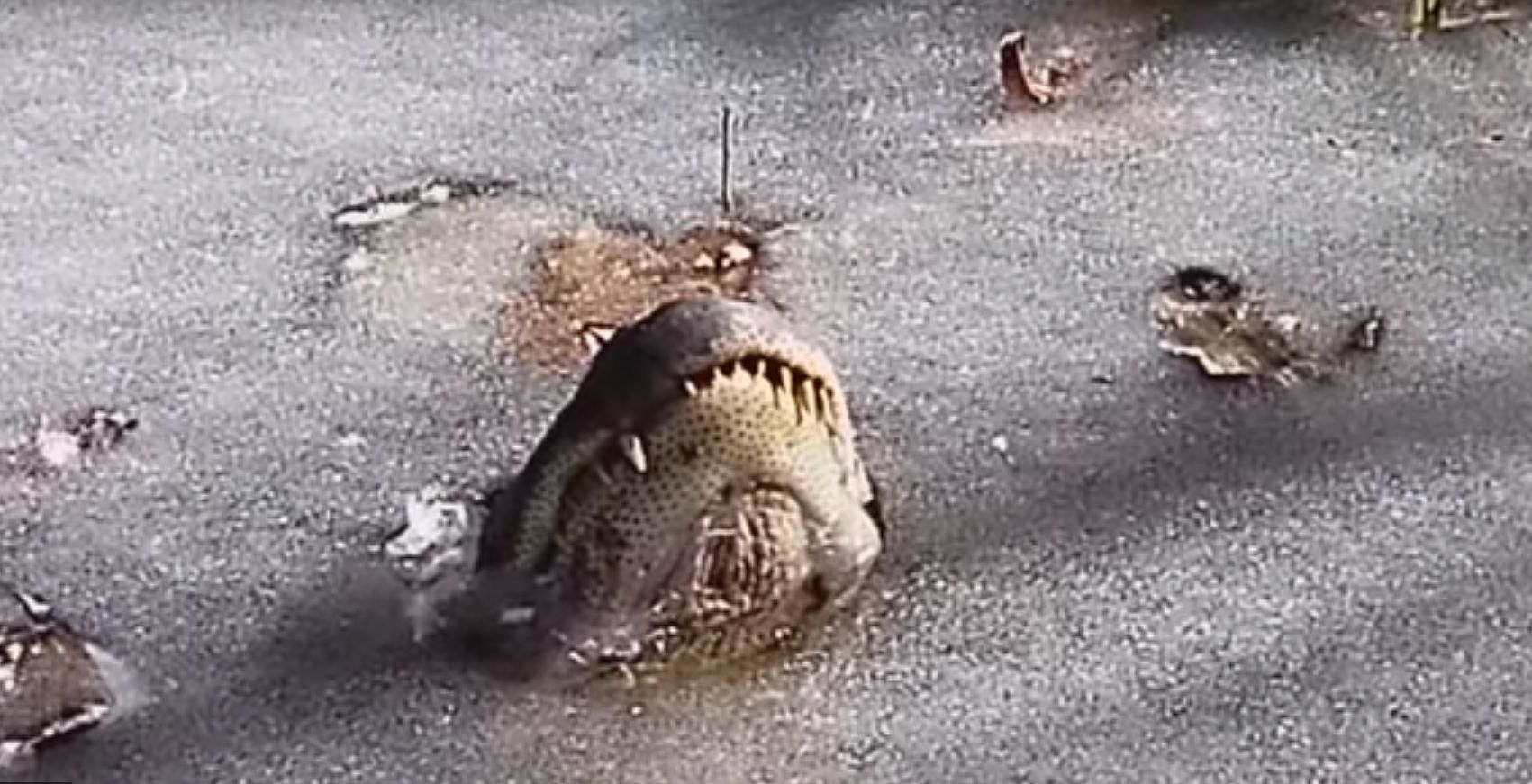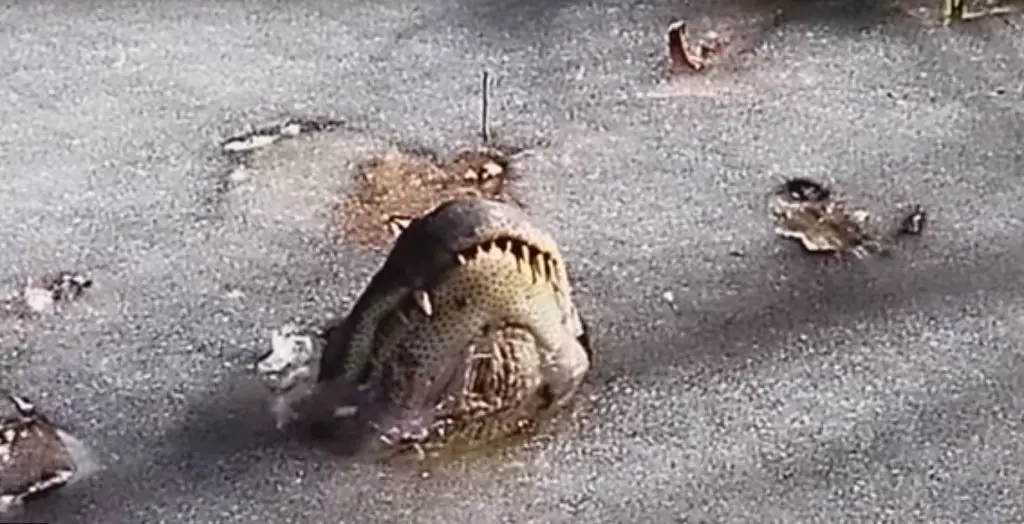Alligators are fascinating creatures that have captured the imagination of people for centuries. These large reptiles are known for their powerful jaws and tough skin, but many people wonder if they hibernate during the winter months.
Although many animals hibernate during the winter, alligators do not. In fact, these reptiles are able to regulate their body temperature and metabolism to survive in a variety of environments, including cold weather. But how exactly do they do it? Let’s dive into the world of alligators and discover the secrets of their survival skills.
Alligators do not hibernate. They are cold-blooded reptiles that regulate their body temperature by basking in the sun or seeking shade. During colder months, alligators reduce their activity and metabolism, but they do not enter a true state of hibernation like some mammals do. Instead, they may become dormant and spend more time in their dens or burrows to conserve energy.

Do Alligators Hibernate?
Alligators are fascinating creatures that have been around for millions of years. They are known to be active during the warmer months, but what happens to them during the colder months? Do they hibernate like some other animals do? Let’s find out.
What is Hibernation?
Hibernation is a state of inactivity that some animals enter during the winter months. It is a way for them to conserve energy when food is scarce and the weather is too cold for them to survive. During hibernation, an animal’s metabolic rate slows down, and they enter a deep sleep-like state.
Do Alligators Hibernate?
No, alligators do not hibernate. They are cold-blooded animals, which means their body temperature is regulated by the temperature of their surroundings. During the colder months, alligators become less active because their metabolism slows down, and they need less food to survive. However, they do not enter a state of true hibernation.
How do Alligators Survive in the Winter?
Alligators have several adaptations that help them survive during the winter months. They are ectothermic, which means they can regulate their body temperature by basking in the sun or moving to cooler areas. During the winter, alligators will seek out warm areas, such as shallow waters or sunny spots on the riverbank, to regulate their body temperature.
Alligators are also able to slow down their metabolism during the winter months, which helps them conserve energy. They can go for several months without eating, relying on their fat reserves to keep them going.
Benefits of not Hibernating
One advantage of not hibernating is that alligators can be active and ready to mate as soon as the weather warms up. This gives them a head start on other animals that have been in hibernation and need time to wake up and become active again.
Alligators vs Hibernating Animals
While alligators do not hibernate like some other animals, they have their own unique adaptations that help them survive during the winter months. Unlike hibernating animals, alligators are able to remain somewhat active and alert, which allows them to take advantage of any opportunities that may arise.
Conclusion
In conclusion, alligators do not hibernate like some other animals do. However, they have several adaptations that help them survive during the colder months. They are able to regulate their body temperature, slow down their metabolism, and survive for several months without eating. Alligators are fascinating creatures that continue to amaze us with their unique abilities.
Frequently Asked Questions
What is hibernation?
Hibernation is a state of inactivity and metabolic depression in animals. During hibernation, the animal’s heart rate, breathing rate, and body temperature drop significantly, and they enter a state of torpor to conserve energy.
Many animals, including bears, bats, and ground squirrels, hibernate during the winter months when food is scarce. However, not all animals hibernate, and some, like alligators, have a different way of coping with the cold.
How do alligators survive the winter?
Alligators do not hibernate in the traditional sense, but they do have a way of surviving the colder months. When the temperature drops, alligators slow down their metabolism and become less active. They also seek out warm, sunny spots to bask in, which helps them regulate their body temperature.
In addition, alligators can tolerate freezing temperatures by slowing down their heart rate and breathing, which allows them to conserve energy. They can also stay underwater for extended periods of time to avoid the cold air temperatures above the surface.
What is brumation?
Brumation is a term used to describe the winter dormancy period of reptiles, including alligators. During brumation, alligators become less active and their metabolism slows down, much like hibernation in mammals.
However, alligators still remain alert and can move around if necessary. They also do not experience the same drop in body temperature as hibernating animals, as they are able to regulate their temperature by basking in the sun or moving to warmer areas.
Do alligators brumate every year?
Yes, alligators brumate every year, but the timing and duration of their brumation period can vary depending on the climate and location. In warmer areas, alligators may only brumate for a few weeks, while in colder areas, they may brumate for several months.
During this time, alligators do not eat, and their activity is greatly reduced. Once the weather warms up, they emerge from their brumation period and resume their normal activities.
Can alligators die during brumation?
It is possible for alligators to die during brumation if they are unable to find a suitable location to brumate or if the weather becomes too extreme. For example, if the water they are in freezes over, they may not be able to come up for air and can suffocate.
However, alligators are well adapted to surviving in their environment, and it is rare for them to die during brumation as long as they are in a suitable location and the weather conditions are not too extreme.
Do alligators hibernate? | Natural History Museum
In conclusion, while alligators do not technically hibernate, they do go through a period of decreased activity known as brumation. During this time, alligators will slow down their metabolism and conserve energy by staying in warmer waters and decreasing their food intake.
It is important to note that alligators are ectothermic, meaning their body temperature is regulated by their environment. Therefore, colder temperatures can greatly impact their activity levels and overall health.
While alligators may not hibernate in the traditional sense, they still have fascinating ways of adapting to their surroundings and conserving energy. As always, it is important to respect these powerful creatures and observe them from a safe distance.


